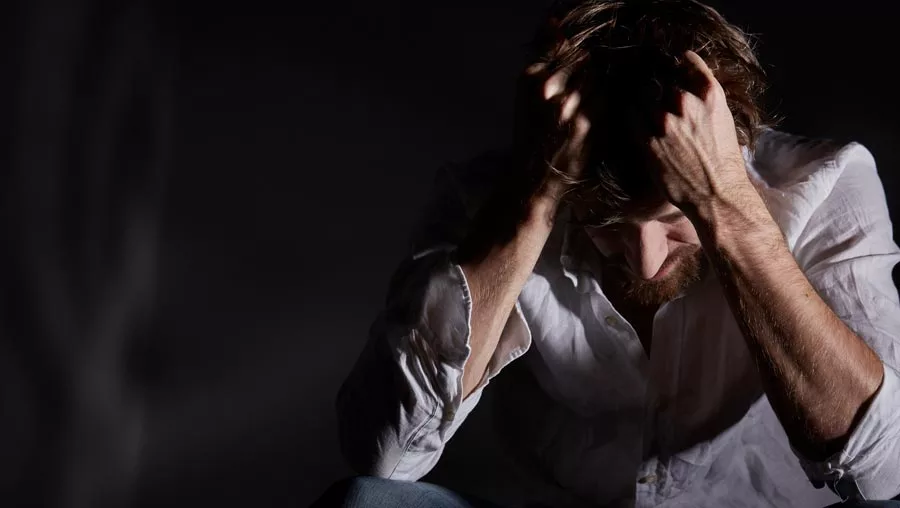Orange County Drug Detox
Orange County Rehab and Addiction Treatment Center
Substance abuse is a growing problem in today’s society. It affects individuals from all walks of life, regardless of their race, gender, or socio-economic status. But there is help for those dealing with addiction. Orange County drug detox and addiction treatment centers provide a variety of services and assistance to help individuals tackle their addiction and attain long-term sobriety.
Keep reading to learn more about substance use disorders, the need for detox and addiction treatment services, and how South Shores Detox and Recovery in Orange County can help you with the recovery process.
What is Detox?
Drug detox (and alcohol detox) is a process used to help individuals struggling with substance use. It is designed to rid the body of dangerous drugs and chemicals in order for an individual to begin the recovery process. Depending on the severity of an individual’s addiction, Orange County detox programs can be performed on an outpatient basis or as part of an inpatient residential treatment.
The Benefits of Residental Treatment Following Detox
Treatment at an inpatient medical detox facility can be incredibly beneficial for those who have a severe addiction problem, as they can provide withdrawal management at the treatment facility.
While undergoing an Orange County detox, clients may receive medication-assisted treatment, nutritional support, and other forms of medical care to ensure safety and comfort. Detox should be seen as only the initial step in overcoming addiction; it must be followed by a comprehensive treatment program that includes evidence-based therapies.
Why Does Someone Need an Orange County Detox Center?

Here’s why many people need help with the detoxification process:
Drug Withdrawal Symptoms
One of the main reasons someone may need help with drug detox is the withdrawal symptoms. These symptoms vary depending on the substance being abused, but they can range from mild symptoms, such as headaches and nausea, to more severe symptoms, such as seizures and hallucinations. In some cases, withdrawal can even be life-threatening.
Medication-assisted treatment (MAT) is an effective tool for reducing symptoms of withdrawal and helping individuals with withdrawal management during detox. MAT can make the detox process more bearable and reduce the likelihood of relapse.
Emotional and Psychological Support
Detoxing can be a tough process, both physically and emotionally. It is important to have professional assistance during this time in order to ensure safety, comfort, and successful completion of the detox program. This help can come in various forms including medication-assisted treatment, nutritional support, and emotional and psychological guidance.
This personalized assistance can make a world of difference for those in need of detoxing from substances, helping them cope with the difficulties of detox and developing healthy habits for the future.
24 Hour Alcohol Rehab Helpline
Common Drug and Alcohol Addiction Withdrawal Symptoms
Symptoms vary depending on the drug used, how long it has been used for, and other factors, but there are some commonalities. The following are some of the most common drug and alcohol symptoms of withdrawal:
- Nausea and vomiting
- Headaches and body aches
- Anxiety and depression
- Insomnia and sleep disturbances
- Tremors and seizures
Signs That Someone Needs Drug Rehab in Orange County
It’s important to be aware of the signs in order to help those who are struggling with substance use disorders. However, recognizing these signs of addiction can be difficult, especially for those who are close to the individual struggling with substance abuse issues.
Keep reading to learn some of the common signs that someone is addicted to drugs or alcohol and may need an alcohol treatment center or an Orange County drug rehab program:
Changes in Physical Appearance
A substance use disorder can have a profound impact on an individual’s physical appearance. Common signs of drug abuse can include weight loss or gain, pale skin, dark circles under the eyes, and changes in personal grooming and hygiene.
Changes in Behavior
Changes in behavior, such as increased secrecy and dishonesty, mood swings, and withdrawal from social activities and relationships, are also common and could be a sign that someone needs addiction treatment at an Orange County rehab in Southern California. Additionally, individuals struggling with addiction may become increasingly irritable, anxious, or paranoid.
Changes in Health
Drug addiction can have serious consequences for an individual’s health, including increased risk of overdose, disease, and other physical and mental health problems. Common health problems associated with drug addiction can include chronic fatigue, respiratory problems, and impaired cognitive function.
Changes in Work or School Performance
Addiction can also have a negative impact on an individual’s work or school performance. This can include constantly missing classes or work, decreased productivity, and a decline in academic or job performance.
Financial Problems
A substance use disorder can also lead to financial problems, as individuals may spend significant amounts of money on drugs or alcohol or engage in illegal activities to support their substance abuse. Additionally, drug addiction can result in job loss or decreased earning potential, further exacerbating financial difficulties.
Legal Problems
Drug problems can also lead to legal problems, as individuals may engage in illegal activities to obtain drugs or may be arrested for drug-related offenses.
Increased Tolerance and Withdrawal Symptoms
Individuals who have become addicted to substances may find that they aren’t getting the same effects from the substance anymore. This can be a sign of addiction, as it means that the same amount of the drug is not having the same effect as before. This is known as tolerance.
In addition, individuals may start to experience withdrawal symptoms such as anxiety, irritability, flu-like symptoms, and fatigue when they try to stop using the drug. These are all signs that indicate that addiction treatment programs should be sought out to help an individual break free from their addiction.
Different Types of Substance Abuse Treatment Programs in Orange County

There are several types of addiction treatment facilities available in Orange County, including the following:
Residential Rehab for Substance Use Disorder
Residential Orange County rehab, or inpatient rehab, is an ideal option for those with severe substance abuse issues or who have tried other treatments without success. At these facilities, individuals receive round-the-clock care and support as well as various therapeutic interventions, such as detox and withdrawal management, individual therapy, group therapy, family therapy, and more – all of which are designed to aid in recovery and achieve long-term sobriety.
Outpatient Treatment Programs
Outpatient addiction treatment programs are an ideal option for those with mild to moderate substance abuse disorders, or those who have completed a residential treatment center program but need continued support. These programs provide individuals with the opportunity to receive care while living at home, attending counseling and therapy sessions regularly, and participating in support groups and other activities that assist them in staying sober.
The Advantages of Dual Diagnosis Treatment Centers
Dual diagnosis, or co-occurring disorders, is a complicated reality for many individuals in the world today. These people suffer from two separate, but intertwined conditions: substance abuse disorder and a mental health disorder. For many of those who struggle with dual diagnosis, drugs or alcohol were used to cope with their existing mental illness.
However, this approach almost always worsens the symptoms of both conditions, leading to a cycle of misusing substances and worsening emotional distress. To effectively manage dual diagnosis, specialized attention and care need to be given to both aspects of an individual’s condition in order to achieve long-term success and stability.
Cognitive Behavioral Therapy (CBT), Dialectical Behavior Therapy (DBT), and trauma-focused therapies are all evidence-based approaches that help people identify the underlying causes of their substance use and mental health problems, enabling them to develop strategies for managing their symptoms.
After Drug Rehab: Aftercare
Aftercare is a vital part of any recovery journey, offering individuals the opportunity to not only maintain their sobriety but also heal and grow in their pursuit of lifelong recovery. A successful aftercare plan can help increase the likelihood of continued success in recovery and reduce the risk of relapse. Common components of aftercare plans include the following:
- Sober Living: A structured living environment for individuals in recovery, with a drug- and alcohol-free environment and a supportive community of peers who are also in recovery.
- Relapse Prevention Plans: Relapse prevention plans identify triggers and manage cravings, and develop coping strategies to prevent relapse through activities such as exercise, mindfulness, and support groups.
- Continued Therapy: Ongoing support and guidance while navigating the challenges of recovery is crucial. This is done through individual therapy, group therapy, family therapy, and/or dual diagnosis treatment where an individual addresses underlying issues such as trauma or depression which may contribute to substance abuse.
12 Step Programs

12-step meetings, such as Alcoholics Anonymous (AA) and Narcotics Anonymous (NA), provide structure for individuals trying to overcome addiction and substance abuse. These support groups are a source of guidance and community for people in recovery, acting as a bridge between an alcohol or drug rehab center and long-term sobriety.
12-step meetings are free, open to anyone who needs help with addiction, and available all throughout Southern California. From Huntington Beach to Newport Beach to Orange County and beyond, these gatherings offer the necessary tools those in recovery need to rebuild their lives from the ground up.
24 Hour Drug Rehab Hotline – Call Now!
Your Choice for a Drug Rehab Center in Orange County
South Shores Detox and Recovery is a team of experienced professionals dedicated to helping individuals overcome substance abuse and addiction. We offer personalized care backed by evidence-based practices, providing patients with tailored treatment plans that are designed to meet their individual needs.
Our supportive and compassionate environment empowers our clients to heal, recover, and embark on a journey of long-term sobriety. Taking the first steps toward recovery can be intimidating, but with the help of our experts, you can reach your goal of sobriety.
The admissions process and all calls to our addiction treatment centers in Orange County are confidential, so please reach out in confidence and get options now!
related pages
- Benzodiazepine Detox
- Opiate And Opioid Detox
- Suboxone Detox
- Behavioral And CBT Therapy
- Dual Diagnosis Disorders
- Mental Health Treatment
- Depression And Mood Disorders
- Alcohol Detox
- Drug Detox Programs
- Addiction Treatment Program
- Mental Health Therapies
- Drug Rehab Orange County
- Drug Rehab Santa Ana
- Couples Rehab Orange County
- Alcohol Rehab Orange County
- Health Net Rehab Center
- Fentanyl Detox
- Dual Diagnosis Treatment Orange County Programs
- Drug Rehab that Accepts TRICARE
- TRICARE Alcohol Rehab
- Alcohol Rehab Santa Ana
- Crack Detox
- Alcohol Detox Orange County
- Heroin Detox
- Medication Assisted Treatment Orange County
- Orange County Drug Detox
